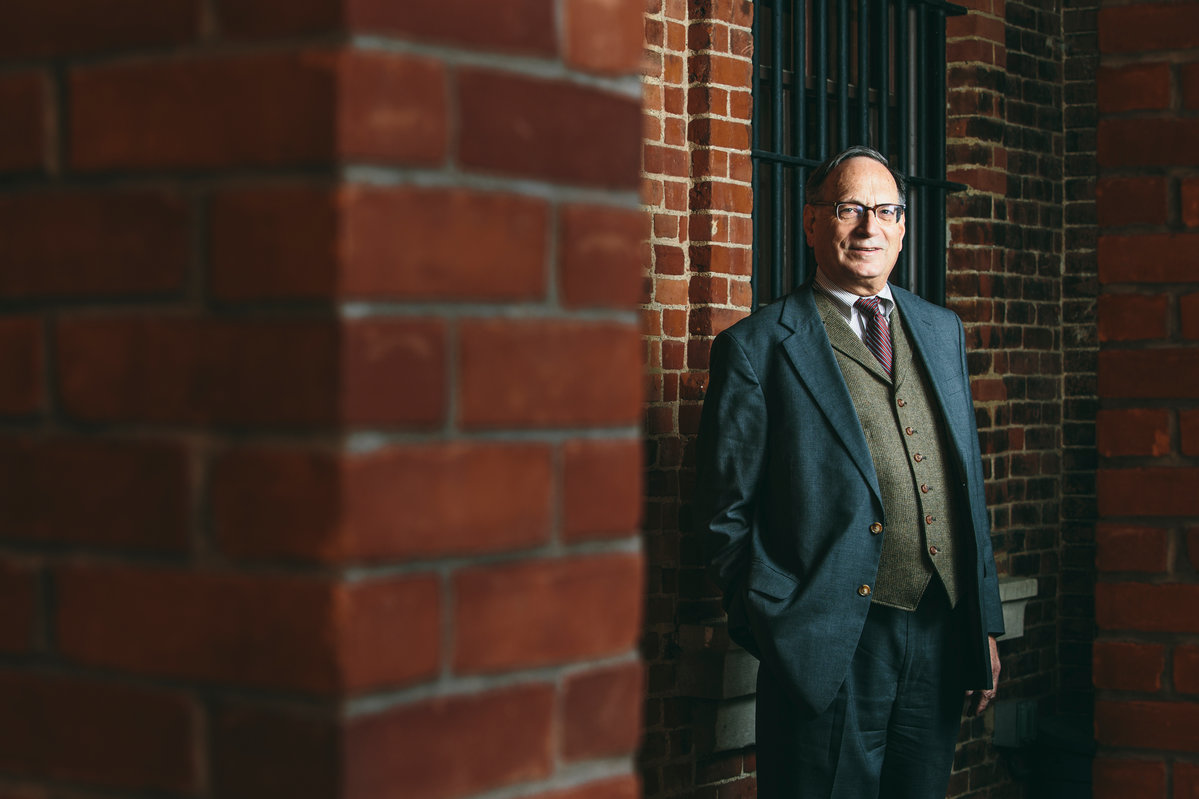
Minnesota 10th District Court judge Tad Jude wears a ring on his right hand that belonged to his father, Victor. Despite the fact it’s 68 years old, each of the words from the 1948 class ring are still legible: College of St. Thomas.
Jude, the oldest of 10 children, followed his father’s example in attending St. Thomas and much else in life: being a public servant, a small-business owner and a visible member of the community. Jude served in the Minnesota Legislature as a representative and then a senator from 1972-88, followed by stretches as a county commissioner, a worker’s compensation attorney for the Minnesota Department of Labor and Industry, and since 2010 as a judge.
“It was just part of growing up that we were involved in the community,” Jude said. “I’ve enjoyed it. I enjoy people and trying to solve problems, and I’ve gotten to do that throughout [my career]."
Jude’s political career began early. Very early, in fact: He was the youngest person ever voted into the Minnesota Legislature when, in 1972, he won the representative seat for District 42A amid a five-candidate field as a 20-year-old senior at St. Thomas. The law requires legislators to be 21 years old, and it was ruled that because he would turn 21 in December (before he was sworn in the following month) he was eligible to be elected.
“St. Thomas really did afford a very good opportunity: I had a professor named Ed Brandt when I was a senior there that gave me an independent study program [to run for office] where he gave me credit as long as I met different requirements,” Jude said with a laugh. “Politics, a lot of what you needed then and need now is the ability to listen to people and be involved in the community. And then be an advocate for the needs of the community. … That’s still the case. A good education gives you the skills you need for a variety of things you might encounter as you go forward, and St. Thomas did that for me. St. Thomas developed a lot of good skills in me to start [my career].”
Jude graduated in December and jumped into his legislative duties. The following fall he enrolled in night classes at William Mitchell and four years later earned his juris doctor degree, which he utilized as a practicing lawyer for many years. Throughout that stretch he remained an elected official, and was voted in for eight straight cycles as a representative and then senator. His law experience helped as he became especially involved in judiciary areas.
“We went from a municipal court system to a county court system to a district court system like we have now [while I was in office],” Jude said. “And then we started the house of appeals, which I chaired the house judiciary committee for. We shrunk the Supreme Court from nine to seven. That structure was set up when I was at the legislature.”
After several years on the county commissioner board and then as a worker’s compensation attorney, Jude was one of 24 people who ran in 2010 for the vacant judgeship in District 10. In yet another role, Jude has remained the consummate public servant.
“He operates with a point of view of a person with an amazingly diverse set of professional experiences,” said Nate Johnson '01, Jude’s law clerk. “[What] I find so interesting about Judge Jude [is] that he was an attorney, a small-business owner; he’s from rural Minnesota but has also lived in the city. … It’s rare we have parties come in to try a case that he can’t relate to in some way.”
Johnson, who was a political science major at St. Thomas, has enjoyed learning from the perspectives Jude brings to the court room.
“The aspects he’s most interested in are the people … and how the laws and the court system affect those people,” he said. “He’s able to have a dialogue with these parties trying to resolve a dispute and can understand their small-business concerns, family concerns, or even if it’s a criminal case and the parties have shown themselves to be imperfect, he’s not afraid to show he can relate to that too.”
Reflecting on a career that remains dedicated to service, Jude was hopeful about why people would continue to seek out public office.
“You’re helping making the community better; hopefully, you’re making opportunities for people in the future. Whether it be in education, environmental opportunities, anything,” Jude said. “I think we are leaving a better society for our children and grandchildren and giving them a good future. It’s being challenged all the time … but I’m optimistic about the world our children and grandchildren will live in.”







